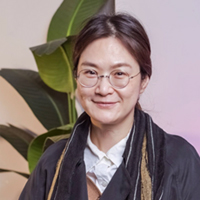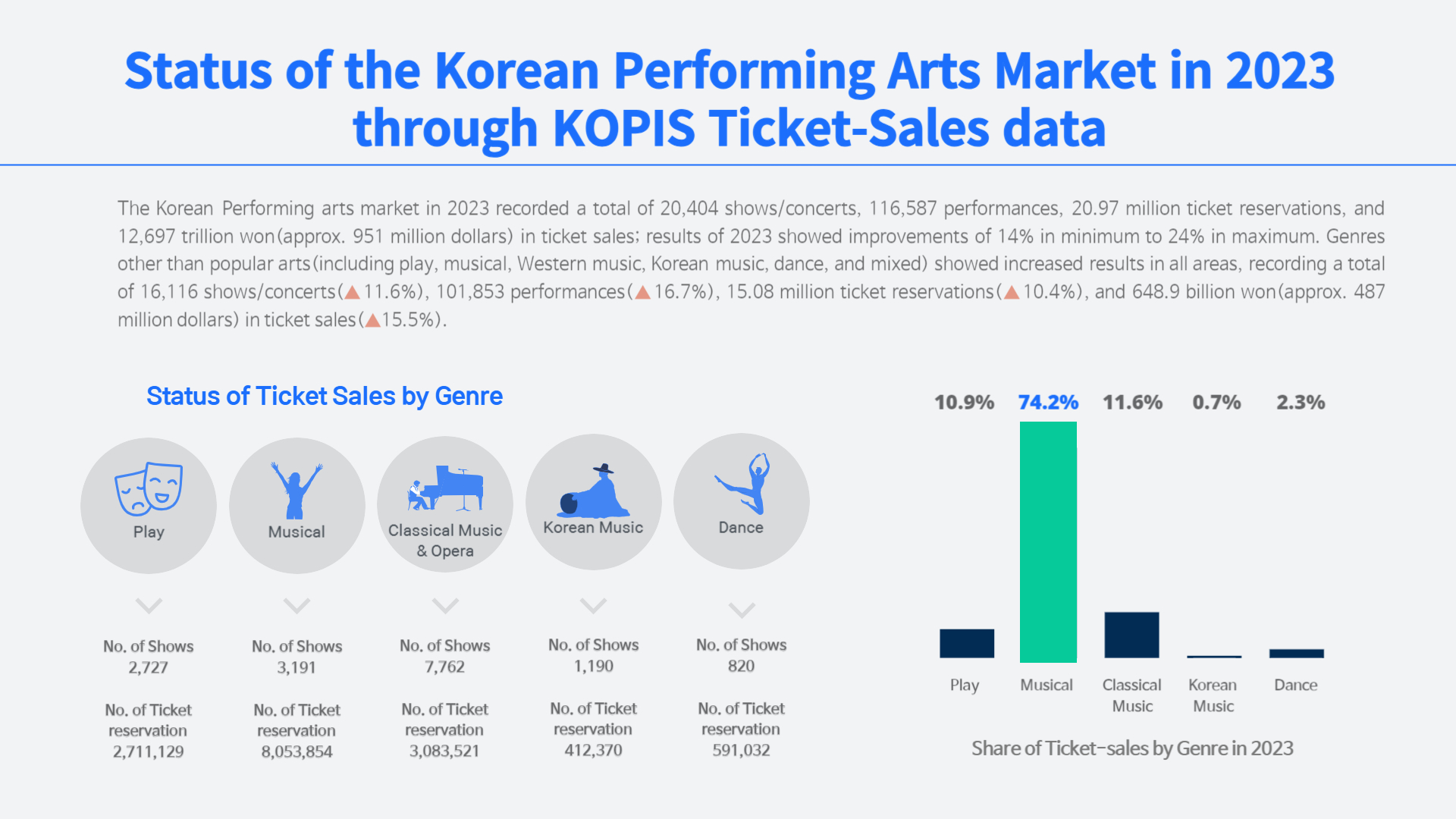The era of VUCA1, the leadership of mediation that designs balanced relationships
Eunji Hong(General Director of Shinchon Arts Space)
The 2022 Performing Arts Market in Seoul was held as an in-person event once again after three years exploring the possibility of exchange and cooperation under the theme of “Art and Sustainability”. PAMS Salon is a program that examines the trend of contemporary performing arts through dialogues, and its first session took place under the title ‘Transformative Legacy and New Leadership’
Questions about where we are now, where we are heading, and what we can see together in the future
Co-associate Director Jin Yim opened the session as the moderator by sharing the context behind how the theme was chosen. She said that the recent pandemic halted many artistic activities, and the difficult time we had to go through made us think about our future. At a time when leaders from a new generation with diverse backgrounds are emerging around the world, the event was prepared in order to talk about leadership in the changing arts ecosystem and to examine the direction arts organizations can take for sustainable development. The session began with the participants introducing their groups and sharing how they became a member of their groups’ leadership. I participated as one of the panelists, and I am sharing the summary of what was discussed in the session in this article.
2022 Performing Arts Market in Seoul (PAMS)〈PAMS Salon: Transformative Legacy and New Leadership〉
- Date and Time: 27 September 2022, 14:00
- Venue: Concert Hall, JCC Art Center
- Moderator : Jin Yim(Co-associate Director of PAMS, Independent producer)
- Kyoto ExperimentPanelists: Eunji Hong (General Director of Shinchon Arts Space),
Juliet Knapp (Co-Director, Kyoto Experiment)
Kyoto Experiment, co-directed by Juliet Knapp, is an international performing arts festival that began in 2010. The festival has been inviting experimental performing arts from Japan and other parts of the world every year to introduce them to the audience. It has been presenting experimental works that freely cross genres with the goal of closely connecting arts and society in a new dialogue format. In 2020, its tenth anniversary, the festival’s leadership went through a change to be jointly led by three directors. Juliet is one of them.
Shinchon Arts Space, where I am working, is a space that supports young artists. Founded by the Seoul Metropolitan Government in 2018, it has been run by the Seodaemun-gu office. As a complex arts space including a public theater with 50 seats, it aims to create a stable creative environment by providing step by step support throughout the creative process. I have shared some of the occasions that led me to participate in space management after working creatively as a director for performing arts-based multi-disciplinary works. I recapped how a series of important events surrounding the Korean arts sector over the past decade i.e. blacklisting, gentrification and the #MeToo movement in the art world has brought the sector to question, reflect and discuss ’freedom of arts expression’, ’sustainability’, and ’safe creative environment.’ And I explained how I’ve been exploring those topics though space management.
Juliet said that ever since she started working for the festival’s PR team in 2017, she and her colleagues have spent a lot of time exploring the idea of “how to connect the festival with various audiences.” That exploration has led her to expose the creative process to the audience so that they can participate more actively, rather than presenting a completed work which would leave the audience with a passive performance watching experience. She wanted to create a space to pursue this idea.
The upcoming changes in leadership, from directors to facilitators
The session then moved onto a discussion on the meaning of collective joint leadership. I cited my experience of participating in the Seoul Fringe Festival, an independent arts festival in Korea, as a programmer and member of its leadership. In 2015 this festival also went through an organizational change from being led by one artistic director to being led by four people in joint leadership. It was an alternative choice made by the festival to become sustainable at a time of rapid change and the entry of a new generation around 2015. I think that change still echoes loudly, because it demonstrates that private festivals, which are highly dependent on manpower, can easily lose the momentum to move forward if they do not change their communication structure.
Juliet said that the very difficult thing about joint leadership is reaching a consensus, and since it is artificial in itself, she always tries to have discussions and talks while sharing the process with the audience. While our society tends to always reach out for what is right and what is the correct answer, she tries to present an experience from the perspective of a festival that is challenging, provocative, and experimental rather than giving the audience a definite answer.
Recently I have noticed the trend of how Korean public organizations change their leadership structure to that of joint leadership. I think it remains to be seen what advantages and disadvantages this will bring. This change will bring democratic communication among all the various members, and it is not going to be an easy process. However, I think it has merit as an alternative that we can explore.
While the word leadership reminds people of a strong system of command traditionally speaking, I wonder whether there can be a soft and flexible leadership. Jin reflected on the meaning and request of the leadership at the time of change, saying that she detects a change in the leadership from the role of a director to that of a mediator. Then she moved the session onto the next topic, which is questions about past legacy.
What is accomplished by the previous leaders and what have they left for the next generation?
When the Kyoto Experiment’s leadership structure changed, former Artistic Director Yusuke Hashimoto said it was okay to change everything except the name. However he made it clear that the festival should be experimental, provocative and risk taking. Juliet said that she is accepting this spirit as the legacy of the Kyoto Experiment, adding that it is seeking various ways to communicate with a changed audience by exploring whether ‘the experimental works of the past are still experimental’. It has been reflecting the change of time on the festival’s programming by inviting younger artists, achieving gender and regional balance, and introducing more works from Asia than from Europe.
Following Juliet’s comment, I expressed my opinion about past legacy in the overall context of the Korean arts sector from the perspective of young artists. The achievement of the previous generation can be summed up as “dedication and passion.” Their artistic achievement must be acknowledged in that they have created a lot of venues and platforms for presentations that never existed. On the other hand, we must examine how the diversity was overlooked in the process and what was condoned in the hierarchical culture. And I think this is serving as a pathway to the next generation. ’Will the various members respect each other and make artistic achievements through free speech?’ “What voice did the arts in the previous time represent, and what must the arts share going forward?” These are the questions that remain in front of us. Jin suggested the idea of a co-legacy system, saying that she envisions the possibility of the legacy being protected by various members of society rather than by one big organization or a single entity.
Then the discussion moved on to the topic of correlation between freedom of the arts and public funding. Through the efforts of the previous generation, the arts have entered the institutional framework in various ways, thus expanding the range of public funding. It was expected to have a positive impact on artistic activities, which is vulnerable when it comes to capital. However, at the same time, it is also true that the arts became much more dependent on public funding. In a situation where changes in public policy and will can act as a major variable, will the freedom of artistic expression be guaranteed even when a large amount of public funding is received? Are there other alternatives? Can the relationship be changed? Many practical questions were discussed. My comment was that providing public funding with respect and support to ensure the private sector’s autonomy will strengthen the arts’ fundamentals, pointing out that it is one of the most important elements. Juliet said that the festival is trying to find a new breakthrough through private funding while the dependency on public funds is high. She emphasized that the most important thing is to maintain the autonomy of the program process.
Agile response to unpredictability and the balance of the collaborative relationship
After the panel discussion, the audience were given a chance to make comments. Kyu Choi, Creative Director of PAMS , asked “if it is possible for festivals or venues to work in a mutual partnership rather than repeatedly competing against each other as individual entities.” Jin’s approach to find the answer for this question was to explore the role of the mediator who functions as a bridge or a link that connects various resources. Juliet mentioned Kansai Studie, one of her festival’s programs, as an example to illustrate how one region can open up a possibility of international cooperation as a mediator, adding that it is important to have a flexible and adaptable approach. I talked about the possibility of solving the problem collectively by focusing on figuring out ‘what questions we need to think about together’ in a complex system where no one can find answers alone. For example, the three keywords proposed by the Shinchon Arts Space - women, disability, and technology - were a proposal I made for us to explore artistic answers from various voices together.
From the audience, Rathi Jafer (Director of the Indo-Korean Cultural and Information Centre AKA Inko Centre), said that reliability and sustainability will be ensured through being able to respond agilely to the challenges and changes posed by the pandemic.
From the audience, Rathi Jafer (Director, The Indo-Korean Cultural and Information Center AKA Inko Centre) said that reliability and sustainability can be ensured through agility to respond to the challenges and changes posed by the pandemic. He said that it is necessary to remind all the actors involved, whether public or private, that they are partners, not sponsors, even if their values and philosophies are different. He added that it is necessary to remind all actors, especially public and private resources with different values and philosophies, that they are partners who join in, not sponsors.
As he mentioned, it was an opportunity for all to look back on our way of thinking about others under the influence of uncertainty in the era of VUCA. It reminded us we desperately need commitment for cooperation to overcome crises while being in a relationship that does not overwhelm one another.

Eunji Hong
Eunji has been working with artists from various fields as a director to produce performing arts based works, while exploring and devising various performance methods. She is one of the people who are running the Sinchon Arts Space.
1 VUCA = Volatility, Uncertainty, Complexity, Ambiguity








 PREV
PREV

.jpg)
.jpg)
.jpg)
.jpg)











